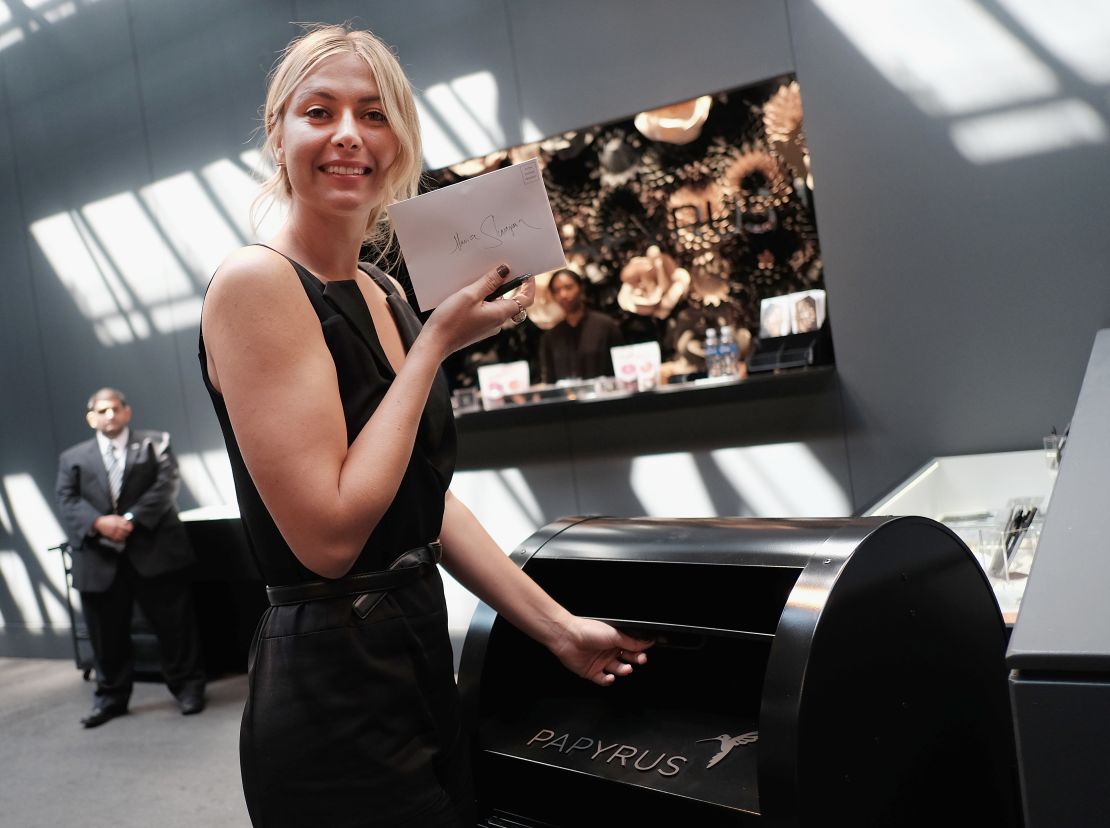Story highlights
Sharapova ban cut to 15 months on appeal
Tennis star questioned tribunal's neutrality
Ruling body ITF rejects her claims
Tennis is a sport where its protagonists take turns to hit so it’s perhaps fitting that the dispute between Maria Sharapova and the International Tennis Federation (ITF) is undergoing an extended rally.
On Thursday, the ITF produced its latest volley as it hit back at a number of claims made by the Russian.
Notably, the game’s governing body denied seeking a four-year ban for the 29-year-old following her positive test for the banned substance meldonium in January.
Read: Sharapova - I never doubted I would return
The London-based ITF also rejected Sharapova’s suggestions that its independent tribunal was not neutral and that it knew about the widespread use of meldonium in Eastern Europe prior to the drug being banned by the World Anti-Doping Agency (WADA) from January 1 this year.
After her failed test at the Australian Open, Sharapova – a five-time grand slam champion – was initially suspended for two years by an ITF-appointed Independent Tribunal.
On Tuesday, the Court of Arbitration for Sport (CAS) reduced the ban by nine months, saying Sharapova was not an “intentional doper,” so allowing her to return to the sport in April 2017.
“The ITF did not try to ban Ms. Sharapova for four years, as has been suggested,” the body said in a statement sent to CNN. “The ITF stated clearly that it was the responsibility of the Independent Tribunal – and subsequently the CAS Panel – to determine what the appropriate sanction should be.”
Tennis anti-doping rules dictate that a four-year ban is mandatory for a first-time offender who has used a prohibited substance.
Maria Sharapova: Richest female athlete of past decade
The Independent Tribunal determined that this was not the case when announcing its findings – and an original two-year ban – in June, ruling that the right-hander had not used the drug as a vehicle for cheating.
Meldonium on prohibited list
Sharapova’s complaints about the make-up of the tribunal also provoked a firm block from the ITF, which administrates the Tennis Anti-Doping Programme.
“Ms. Sharapova has stated that the Independent Tribunal was ‘not neutral,’” the ITF said. “Ms. Sharapova’s legal team was given the opportunity to object to the appointment of any member of that Tribunal in advance of the hearing, and they agreed in writing that they had no objection.”
Read: Sharapova attends Harvard during ban
Sharapova’s legal team had also argued that the ITF should have clearly informed Eastern European athletes that meldonium had been placed on the prohibited substances list because of the relative popularity of the drug in the region.
“This is not true,” the ITF rallied. “In fact, it was accepted by Ms. Sharapova in the hearing before CAS that the ITF did not know before 2016 about the extent to which meldonium was used by athletes from any region, or that Ms. Sharapova herself was using meldonium.”
As was pointed out by both the Independent Tribunal and CAS, Sharapova’s failure to declare her use of meldonium on doping control forms meant the ITF was unaware of her usage of a drug sold under the brand name “Mildronate.”
Sharapova was first prescribed meldonium in 2006 for heart issues, and she said she was unaware it had been added to the banned substance list by WADA since her agent had failed to inform her.
What do you think? Have your say on our Facebook page
Later Thursday, CNN was emailed the letter sent by Sharapova’s attorney John Haggerty to the ITF’s anti-doping manager Dr. Stuart Miller, rebutting point by point the organization’s statement.
“It is my sincere hope that the ITF will refrain from issuing any further misleading press releases regarding not only Maria, but about the manner in which its Tribunal functions,” Haggerty said.
“Instead I ask the ITF to endeavor to review its processes for communicating changes to the Prohibited List to players, establish a process for monitoring test results to those impacted, and to work better conduct itself consistent with its stated goal of ‘protecting the health and rights of tennis players.’”

‘Biggest fighters’
On Wednesday, Sharapova told CNN she never doubted she would return to tennis, while also seeking to defend her reputation.
“I know who I am and I know how I’ve played the sport since I was a young girl, with integrity, I’ve never taken the easy way out. I’m one of the biggest fighters in the game,” she said.
“I love what I do and I will continue to keep doing it and forming my legacy.”
After her ban was cut short, Sharapova is in line to return to tennis ahead of next year’s French Open – the only grand slam she has won on two occasions, in 2012 and 2014.
Having also won Wimbledon (2004), the US Open (2006) and the Australian Open (2008), Sharapova is one of 10 women to have won all four grand slams.













